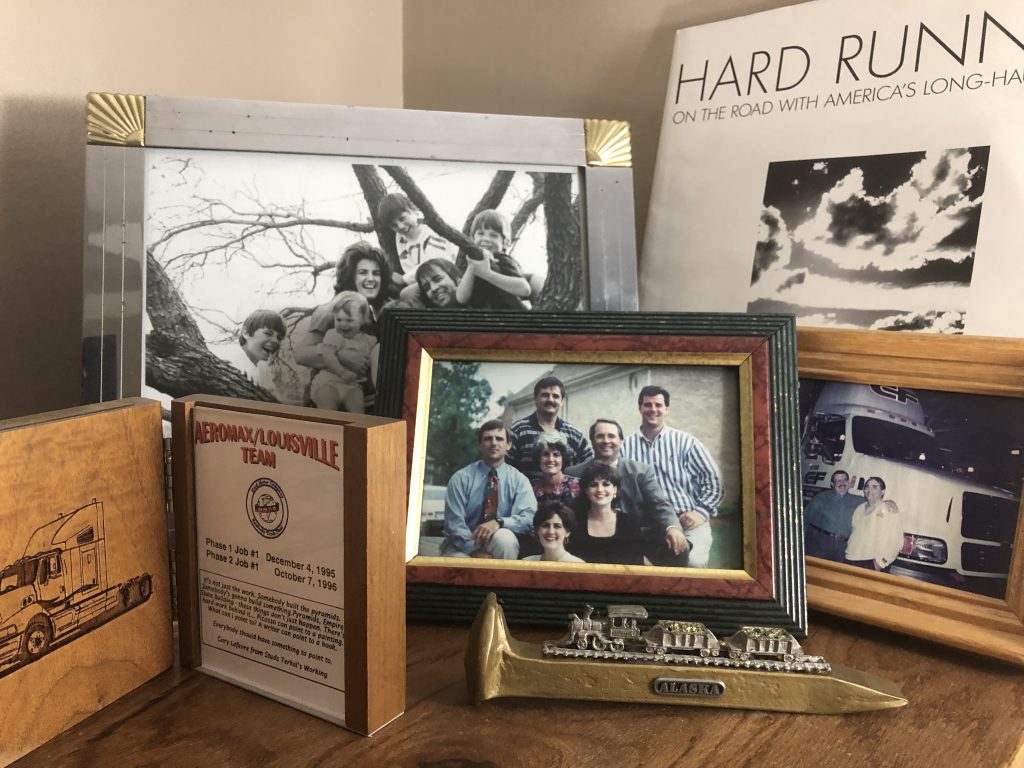
This post continues my quarantine reflections. As mentioned in my previous post, quarantine has provided opportunity to clean out. Among some random notes I came across were notations from a speech by Shaun Casey at the Christian Scholars Conference at Lipscomb University in 2017. The subject of my notes was nostalgia. They are thought provoking and obviously caught my attention listening to the lecture. The title of Casey’s lecture was ” Rage, Nostalgia and the Forgetfulness of God”. Prompted to re-listen to the lecture I was surprised to find that my notes were generated by a brief segment in the latter portion of a one hour + lecture. Those notes seem to be even more relevant 3 years later and worthy of sharing.
Excerpts on nostalgia:
I now want to turn to a troubling but all too common Christian response to rage and that is nostalgia. I’m trying here to answer the question why are so many American Christians attracted to nostalgia today.
I also hear the voice of my 23 year old daughter who responds to any declaration I make and “Dad what is wrong with that?”. So to the people who think nostalgia is a good thing, I’m trying to address you if you’re here today.
I’m trying to argue that nostalgia is not a Christian virtue. That more often than not nostalgia masks darker impulses. While explicitly marketing certain forms of virtue that delude and misdirect Christian theology while purporting to restore some lost theology or practice.
Nostalgia is a misbegotten form of memory. It is the pursuit of that which never was in the pursuit of addressing some perceived current malady.
Nostalgia needs a narrative of failure and loss to be attractive and to be intellectually or psychologically effective. All nostalgic narrative have a golden era.
Something from the past has disappeared or it’s currently existentially threatened, in order to make the appeal to restoring what has been lost persuasive.
Ironically, what is lost often proved to be imaginary and not real. Nevertheless memory manufactured or misbegotten can be as powerful is memory of real events and we need to be able to separate the two.
Traditional Christianity is a nostalgic construct.
After reading my notes, I was again thrown in to a state of cognitive dissonance (Oh no, not again). On the one hand, Casey was playing to my choir. I perceive much of the divisive rhetoric I hear, political and religious, is based on a nostalgic construct that fits Casey’s description: Nostalgia is a misbegotten form of memory. It is the pursuit of that which never was in the pursuit of addressing some perceived current malady.
On the other hand, I am eaten up with nostalgia. In the longer view, it is probably a natural consequence of aging. As life gets shorter, looking in the rear view mirror becomes more appealing, for good or ill. More immediately, redoing my office and cleaning has revealed my nostalgic impulses. (See sample below)

Nostalgia is a pleasure I’m unwilling to give up.
…nostalgizing helps people relate their past experiences to their present lives in order to make greater meaning of it all.
“Nostalgia makes people feel loved and valued and increases perceptions of social support when people are lonely.”
While I have no illusion about nostalgia as a Christian virtue, I understand it as human experience endowed by our Creator.
A bit of research on nostalgia produced some helpful insights.
Svetlana Boym identifies two distinct types of nostalgia: “restorative” nostalgia and “reflective” nostalgia.
https://www.psychologytoday.com/us/blog/time-travelling-apollo/201606/the-two-faces-nostalgia
These two types of nostalgia represent fundamentally different attitudes toward the past, and it is this difference that largely determines whether our memories of those happy days of yore will evoke feelings of joy or of sadness. Restorative nostalgia, involving a desire to “rebuild the lost home,” views the past with an eye toward recreating it—a desire to relive those special moments. It is what spurs us to pull out our phone at 1 a. m. and call up an old boyfriend or girlfriend because we just heard “our song” on the radio.
Reflective nostalgia, on the other hand, accepts the fact that the past is, in fact, past, and rather than trying to recreate a special past experience, savors the emotions evoked by its recollection. This acknowledgment of the irretrievability of our autobiographical past provides an aesthetic distance that allows us to enjoy a memory in the same way that we enjoy a movie or a good book. If “our song” were to come on the radio at 1 a.m., reflective nostalgia would be more likely to make us reach for an old photograph than for our phone, evoking in us a momentary sense of emotional pleasure rather than a restless urge to recreate a special moment from our past, and a sense of sadness when we realize the futility of that desire, that special moment, as it was lived, being forever sealed off from the present we inhabit. With reflective nostalgia, it is the very fact that an experience is sealed off from the present that makes it a source of pleasure. Like a favorite movie or book, it possesses an aesthetic wholeness that allows us to savor it again and again with no nagging uncertainty about how it will turn out.
Though I’ve had occasions of restorative nostalgia, wishing to recreate a “special” moment, they always proved to be a disappointment. As it’s been said, “You can’t go back”. Memories are tricky, often misbegotten. I am reminded of how shockingly small the roomy house I grew up in was when revisited as an adult.
It is reflective nostalgia, sealed off from the present, that brings deep pleasure. As the writer above observed, …it possesses an aesthetic wholeness that allows us to savor it again and again with no nagging uncertainty about how it will turn out.
I would suggest that reflective nostalgia may be counted as a Christian virtue. I’ll have to think on that some more.
There is a lot more to to consider, not the least of which is why Casey is in such twit over nostalgia? Part (2) will address that question and some other aspects of nostalgia.
If you are interested (I know you have the time), you can watch Casey’s entire hour long lecture below.
Great post, George. I’m wondering if ancient Israel’s reflection on Yahweh’s redemption from Egypt could be evidence that reflective nostalgia can serve as a Christian virtue. By contrast, it seems we see something of restorative nostalgia, more accurately a distorted nostalgia, when they begin to dream of the glory days in Egypt, consuming unlimited quantities of meat, fish, cucumbers, melons, onions and garlic (Num 11:4-5).
Thanks for reading. Yes, as you will see in subsequent posts, I’m curious how nostalgia relates to remembrance in our faith. Can/ have virtuous nostalgia, i.e. Passover, eucharist, Easter, et al be/been distorted in our secular age? Commodified ? Be glad to hear your perspective. Think of you all fondly often.